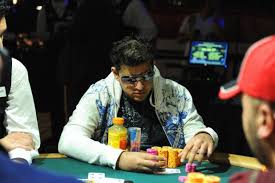
Slot machines have been a cornerstone of the gambling world for over a century. From the old-fashioned mechanical one-armed bandits of the past to the sleek digital machines found in casinos today, slot games have captured the imagination of players worldwide. But how exactly do these games work? How do casinos ensure that they remain fair and unpredictable while offering players a chance to win?
In this article, we’ll break down the essential components of modern slot machines, with a focus on the technology behind them—specifically, Random Number Generators (RNGs) and how they determine the odds of winning.
1. The Evolution of Slot Machines
The history of slot machines dates back to the late 19th century, when the first mechanical slots appeared in bars and casinos. These early machines, like the Liberty Bell invented by Charles Fey in 1895, used mechanical reels and were operated by a lever (hence the term “one-armed bandit”). Players would insert a coin, pull the lever, and hope the symbols on the reels aligned in a winning combination.
As technology advanced, so did the design of slot machines. By the late 20th century, the industry transitioned from mechanical reels to electronic slot machines, which paved the way for more complex gameplay and the introduction of features like video slots, multiple paylines, and bonus rounds.
Today, most modern slot machines are digital and rely on sophisticated software systems to determine the outcome of each spin. At the core of this technology is the Random Number Generator (RNG).
2. What is an RNG (Random Number Generator)?
An RNG is the heart of every modern slot machine, ensuring that the outcome of each spin is random and independent. RNGs are computer algorithms designed to generate a sequence of numbers that has no predictable pattern. These numbers determine the symbols that land on the reels after a spin.
To understand how an RNG works in a slot machine, let’s break it down:
- Reel Positions: Each slot machine typically has three to five reels, each with a series of symbols (like fruit, numbers, or themed icons). When you spin the reels, the RNG generates a random number for each reel, corresponding to a particular symbol in the reel’s array. The reels then stop, and the symbols align to create a combination.
- The Random Nature: The RNG doesn’t take into account previous spins or any external factors—each spin is entirely independent. This means that the outcome of a spin is determined solely by the numbers generated by the RNG, making it impossible for players to predict or influence the result.
- Milliseconds of Calculation: RNGs operate continuously, even when the machine is not in use. Every millisecond, the RNG generates a number, and when a player hits the “Spin” button, it’s this number that determines the outcome of the next spin. This process is so fast that the results seem instantaneous.
- Testing and Certification: To ensure fairness, RNGs are regularly tested and certified by independent auditing agencies. This means that casinos and online operators are required to meet strict standards for RNG performance, ensuring that the games are fair and that players have an equal chance of winning based on the odds.
3. How Slot Odds Are Determined
While the RNG ensures the outcome of each spin is random, odds are what determine how likely it is that a player will win on any given spin. The odds of winning on a slot machine depend on several factors, including the number of paylines, the denomination of the slot, and the frequency of winning combinations.
Here’s how slot odds work in more detail:
Paylines and Payouts
Most modern slot machines offer multiple paylines, which are lines across the reels where symbols must land in order to trigger a payout. In classic slots, there may be a single payline (usually horizontal), but more complex video slots can have dozens of paylines, often in multiple directions (vertical, diagonal, or zigzag). The more paylines a machine has, the greater the potential for hitting a winning combination.
However, more paylines also generally mean a higher total bet, as players must place a wager on each line. Payout structures for each slot machine vary depending on the game and its volatility, but they are all based on the odds of landing the necessary symbols across those paylines.
Hit Frequency and Volatility
Each slot machine has a concept called hit frequency, which refers to how often a slot will produce a winning combination. A machine with a high hit frequency will provide smaller wins more often, while a machine with a low hit frequency will pay out larger wins but less frequently. The volatility of a machine is closely tied to hit frequency, with high-volatility machines offering bigger wins but fewer frequent payouts, and low-volatility machines offering smaller, more frequent wins.
- Low Volatility: Players experience more consistent wins, but these are usually smaller. This type of machine is popular among those who prefer longer play sessions and less risk.
- High Volatility: Players may go through long dry spells without wins, but when they do win, the payouts are typically much higher. This type of machine appeals to risk-takers and those hoping for a big jackpot.
Return to Player (RTP)
The Return to Player (RTP) is a percentage that indicates the theoretical amount a slot machine will pay back to players over a long period. For example, a slot with an RTP of 95% means that, on average, the machine will return $95 for every $100 wagered. However, this is a long-term average, and individual sessions can vary widely from the RTP.
It’s important to note that RTP is not something that can be influenced by the player. The odds and payouts are built into the game by the developer and remain consistent, regardless of how many times a player spins the reels.
The House Edge
The house edge is the opposite of RTP. If a slot machine has an RTP of 95%, this means the house edge is 5%. The house edge represents the casino’s advantage over the player in the long run, ensuring that, on average, the casino will make a profit. While players can still experience short-term winning streaks, the house edge ensures that over time, the casino will always have an advantage.
4. Progressive Jackpots: A Different Type of Odds
A progressive jackpot is a type of slot machine that offers a growing jackpot prize, which increases each time the game is played but the jackpot is not won. Progressive jackpots are often linked between multiple machines in a network, allowing the prize to accumulate more rapidly.
The odds of winning a progressive jackpot are much lower compared to regular slot games, but the payout can be life-changing. The size of the jackpot is usually displayed prominently on the machine or online interface, making it an enticing option for players hoping for a big win.
The odds of hitting a progressive jackpot are determined by the RNG and the specific payout structure of the game, but generally, the odds are much lower because the jackpot prize is so large. Players must usually bet the maximum amount to be eligible for the jackpot, further influencing the cost of playing.
5. Why Slots Are Designed for Entertainment, Not Guaranteed Wins
It’s important for players to understand that slot machines are designed to be an entertainment experience. While it’s possible to win big, the odds are heavily skewed in favor of the house. Slots are games of chance, and there’s no way to predict or influence the outcome.
The randomness introduced by RNGs ensures that each spin is independent, and the odds are designed to be favorable for the casino over the long run. This makes slot machines one of the most exciting but unpredictable forms of gambling, with both small wins and big jackpots offering thrills along the way.
6. Conclusion: Understanding RNGs and Odds in Slots
Slot machines are a blend of chance, technology, and entertainment. At the core of every modern slot is the Random Number Generator (RNG), which ensures that the outcome of each spin is random and fair. While RNGs determine the immediate results, the odds of winning are shaped by factors like the number of paylines, RTP, volatility, and house edge.
For players, the key to enjoying slot machines lies in understanding how they work. By grasping the mechanics of RNGs and the odds, players can approach slots with a better sense of what to expect—whether it’s the excitement of chasing a progressive jackpot or the thrill of landing a winning combination on a high-volatility machine. Remember, while slot machines can offer big wins, they should always be seen as a form of entertainment rather than a guaranteed way to make money.
Join KKClub today for exclusive casino games and big wins – your lucky streak starts here!



